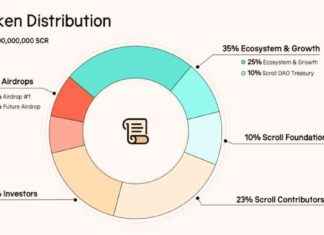(Information sent by the signatory company)
In 2021, 40,638 babies were born in Spain using this method, 11.7% more than in 2019. Changes in lifestyle, geographic mobility, and new family models, determining factors in the increase in demand for these treatments, according to Mercedes Morales, director of Operations at Clínicas EVA
Madrid, November 3, 2023.- “Motherhood is a challenge for the modern woman.” Under this phrase from Mercedes Morales, the new head of the largest fertility network in Spain, Clínicas EVA, there are relevant social aspects that paint a birth scenario completely different from that of previous generations.
Until the 1970s, the incorporation of women into the workforce was non-existent, only to become incipient and, year after year, increasing discreetly. This incorporation is not only surpassed today, but in the 21st century the women’s struggle in the world of work has become about equalization of salaries and access to positions of responsibility.
This desire to strengthen the professional career of today’s woman competes, for the moment, and despite the significant advances that are being achieved in terms of conciliation, with the possibility of being a mother and combining both relevant areas of life. For this reason, and also because of the economic changes associated with sociopolitical crises, women delay childbearing. And she does it waiting for the right circumstances to achieve it.
This context, explains Mercedes Morales, is what has led to what is being called the assisted reproduction boom, which began around 2012, with the generalization of knowledge and demand for its techniques. Since then, and according to the experience of EVA professionals, undergoing In Vitro Fertilization or Artificial Insemination no longer has to do exclusively with endogenous problems associated with infertility. After the increase of 11.7% between 2019 and 2021 that the SEF highlights in a recent statement, there are diseases such as endometriosis, polycystic ovary syndrome and sperm mobility problems, in the case of men, among many others, as well as environmental and genetic factors. But also, they reflect from these centers, a desire to be parents adapted to the needs of new times.
Pregnant in their forties (and in their 50s) thanks to the preservation of motherhood
Thus, the age to become a mother has also increased in the period studied by the Spanish Fertility Society, although it is the National Statistics Institute that estimates the age at which Spanish women bring their first child into the world at 31.4 years. According to the INE, births among women between 45 and 49 years old have doubled. This increase is 55% since 2016.
This has been possible, to a large extent, thanks to maternity preservation treatments, that is, egg vitrification, which allows the reproductive material to be frozen in identical conditions until the woman decides that the time has come to fulfill her life. desire to have a child. It is a simple technique accessible to all budgets that allows you to see the hands of the biological clock move without worrying.
The new family models and access to assisted reproduction techniques for gay and lesbian couples is another reason for the success of these treatments, within a very advanced legal framework in relation to other European countries. This circumstance favors not only internal demand but also the so-called fertility tourism, that is, the arrival of foreign citizens who rely on Spanish reproductive laws to have offspring.
Mothers over 40, mother-and-mother couples, frozen sperm and eggs to use when work and finances allow. Once upon a time, these realities associated with birth could have seemed like science fiction. Not only are they not, but, based on various scientific studies, it could be said that the assisted reproduction revolution has only just begun.
A human and multidisciplinary approach supported by complementary techniques
For EVA’s fertility experts, pioneers in the introduction and democratization of access to assisted reproduction in Spain, the challenge is not only to improve treatment success rates and advance medical studies and achievements, but to humanize the process. Above all, its director clarifies, “from an angle that we are undoubtedly committed to and which is that of the analysis and study of all the medical aspects that allow us to identify possible hidden pathologies that prevent this pregnancy.”
That is, it is not only about accompanying and psychologically supporting the patient seeking pregnancy, but also about contributing to their well-being and success with alternative therapies to improve their physical and emotional conditions, for which a medical team is made available. complete, not only made up of gynecologists, who studies after treatment all the areas of influence that could affect the implantation of that embryo in the mother’s uterus. “We increasingly have more means and treatments, such as hyperbaric therapy, which for example is being used to improve the physical conditions of women, or new panels for detecting incompatibilities.”
Other objectives: economic facilities and prevention
Will all those who want to be parents and do not achieve it naturally be able to afford this multidisciplinary and specialized help?
The advance in technologies, and the increase in competitors, Morales responds, has regulated the market. It is still an investment for all budgets, and depending on the case, and the needs, it can be more or less expensive, but something that can be addressed, especially with the support of some financial companies that have joined in to provide facilities for all. cases that arise.
Before, and, as happens with other health sectors, prevention, prevention and prevention; early generalized fertility studies that can identify problems in this regard when one is young and preservation of the eggs at those ages, when they still retain their reproductive quality and quantity so that whoever wishes can fulfill the dream of having offspring.
Contact Contact name: Carmen de Blas Contact description: Miss Zoe Communication / Account management Contact telephone: 630 00 72 10







